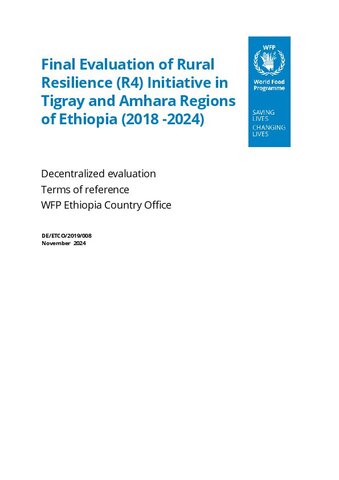
In 2018, the United Nations World Food Programme (WFP) in Ethiopia launched the Rural Resilience Initiative with funding of 20 million euros from Germany’s Kreditanstalt für Wiederaufbau (KfW) (2018 to 2024). The initiative has been implemented in Tigray and Amhara Regions aims to increase food and nutrition security for vulnerable people and small holder farmer by integrated approach to manage or transfer risks of climate-related disasters using social safety nets: Risk Reduction, Risk Transfer, Risk Retention, and Risk-Taking (R4). The program included strategies with a mix of interventions that enhance resilience by facilitating access to productive livelihood activities (Natural and Water Resources Management, Climate Smart Agriculture – enablers of production), access to risk transfer mechanisms (crop and livestock insurance) to protect their investments from adverse effects of climate induced shocks (drought is the main focus now) and access to finances to enable supported households to procure their desirable inputs (seed, implements, mechanization technologies, and veterinary services).
The terms of reference (TOR) aim to inform stakeholders about the evaluation, clarify expectations and requirements and guide the evaluation team in its work during the various phases of the evaluation. The TOR presents the scope, objectives, key issues, stakeholders and users of the evaluation. It also describes the evaluation approach, team composition and organization.



